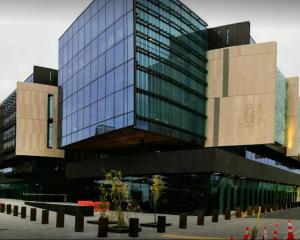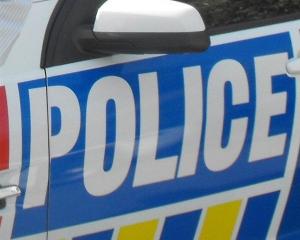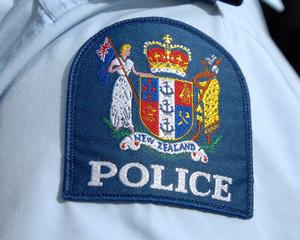The lawyer who brokered a deal that led to the return of valuable war medals stolen from Waiouru Army Museum has defended the payment of reward money to get them back.
Auckland lawyer Chris Comeskey, who negotiated the return of the 96 medals, including nine Victoria Crosses, said money was ‘‘simply another tool to use in achieving an objective''.
‘‘You can always print more notes, but these medals are irreplaceable,'' he said. On December 2, thieves broke into the museum and stole the medals, awarded to 12 New Zealanders.
On January 17, a $300,000 reward was offered for information leading to the safe return of the medals - three times the previous highest reward offered in a police investigation.
British medal collector Lord Michael Ashcroft put up $200,000 and Nelson businessman and former United States Marine Tom Sturgess the balance.
Mr Comeskey, through underworld contacts, successfully bargained to have returned all the medals stolen. It is understood some of the money will go to the thieves.
Some of the families of the war heroes who were awarded the medals are angry that the thieves could profit.
Auckland University Assoc Prof Scott Optican said last night Mr Comeskey appeared to have ‘‘simply acted as a broker for someone who wanted to come clean'', and was not doing anything out of the ordinary.
He said Mr Comeskey could get into more trouble revealing details of those involved than if he says nothing.
He said Mr Comeskey would be under no obligation to speak to police and as a lawyer keeping quiet could be ‘‘perfectly his right and possibly his obligation'' because of ‘‘ethical guarantees'' to his client.
‘‘If you want to let lawyers play these rules you can't then be in a situation where lawyers are going to be first witnesses against them,'' he said.
He did not believe Mr Comeskey's actions had set some kind of precedent. ‘‘The lesson from it is for people to appreciate . . .that this is a good example of how rules of confidentiality and privilege do play a roll that . . . [creates] some public good.''
Law Society ethics council member Nicholas Till QC, last night said the extent of lawyerclient privilege often depended on the nature of the discussions.
While conversations in which legal advice was given were privileged, conversations held for ‘‘the furtherance or future commission of a crime'' were not.
Mr Till refused to discuss the return of the medals specifically, but said such a matter raised two questions: who was the lawyer acting for, and in what capacity?
Conversations would likely be privileged if the person had been acting ‘‘with a view to mitigation of the offence''. If he was doing it for any type of payment, privilege might not apply, he said.
Police have vowed to find those responsible for the medals heist. Inquiry head Detective Senior Sergeant Chris Bensemann yesterday refused to discuss the police arrangement with Mr Comeskey, but said investigators had made ‘‘considerable progress'' because of him, and officers now had ‘‘people in their sights''.
The investigation always had two objectives: Firstly, to recover the medals and, secondly, to catch those responsible for their disappearance.
He denied investigators were angry at having to make the reward payment. He did admit the payment had been a ‘‘massive motivation'' to find those responsible.
‘‘The recovery of the medals was the top priority. ‘‘Nevertheless, our job won't be complete until we find the perpetrators of this burglary and bring them to court.'' - Additional reporting NZPA






